The Investigation Award
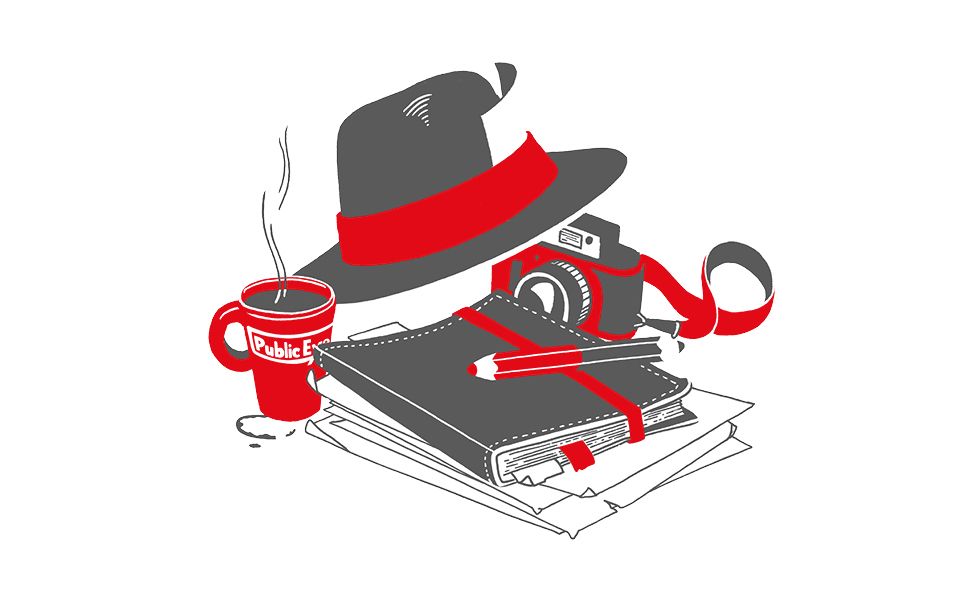
Shedding light on hidden wrongdoings can change the world. For this reason, Public Eye is now promoting for the third time its Investigation Award, set up for the first time on the occasion of its 50th birthday in 2018. The grant is aimed at supporting media professionals and NGOs, encouraging them to investigate the activities of Swiss companies in developing countries and their ramifications in terms of human rights violations, environmental damage or financial crimes.
More infos
-
Le prix d’investigation
À l’occasion de son 50e anniversaire, en 2018, Public Eye a concrétisé un rêve longtemps caressé : créer un prix d’investigation destiné à soutenir le travail de journalistes et d’ONG qui s’intéressent aux activités problématiques de sociétés domiciliées en Suisse, et à leurs conséquences néfastes dans les pays économiquement défavorisés.
Avec plus de 100 propositions au total, les deux premières éditions ont connu un grand succès, qui témoigne non seulement du besoin de financement et de temps des journalistes et acteurs de la société civile pour mener des recherches au long cours, mais aussi de leur force de proposition.
Face à cet engouement, Public Eye a décidé de lancer une 3e édition de son prix d'investigation. Car la révélation de cas concrets de pratiques irresponsables est essentielle pour ouvrir un débat indispensable et provoquer les changements politiques nécessaires pour empêcher les abus – ou au moins pour qu’ils puissent être punis.
En 2023, notre jury de renom sélectionnera à nouveau deux projets d'enquête, qui bénéficieront d'un soutien de 10 000 francs chacun.
-
Un jury de renom
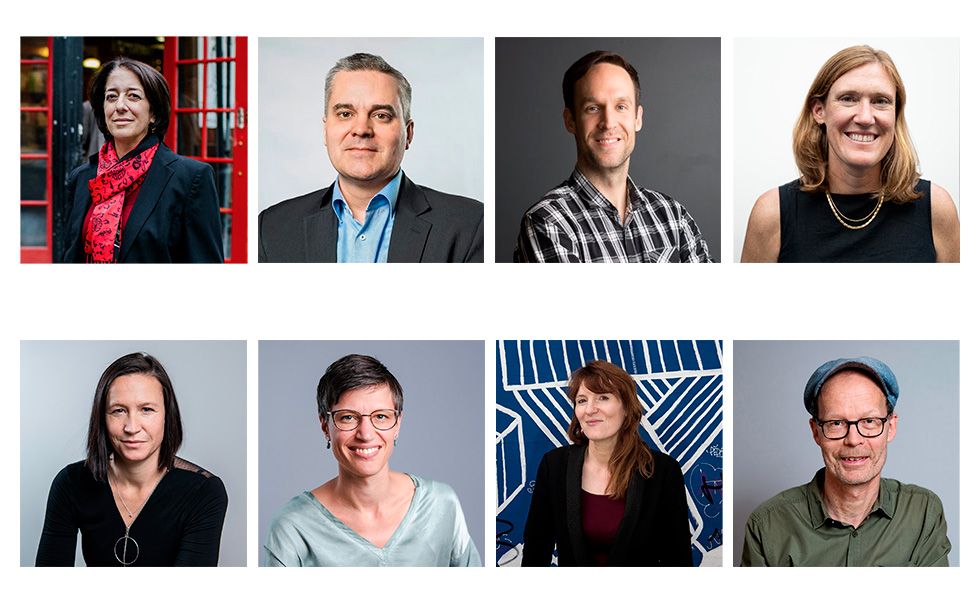
Pour sélectionner les projets lauréats, nous avons constitué un jury de choc, composé de quatre membres de l'équipe de Public Eye, et surtout de quatre journalistes de renommée internationale, bénéficiant d'une longue expérience dans le travail d’investigation.
- Anya Schiffrin est directrice de la section «International Media and Public Affairs» de l’université de Columbia à New-York et a édité plusieurs ouvrages sur le journalisme, dont Global Muckraking. Par le passé, elle a notamment travaillé comme correspondante de l’agence de presse Reuters en Espagne et cheffe du bureau du Wall Street Journal aux Pays-Bas et au Vietnam. Elle occupe par ailleurs la fonction de conseillère pour l’Open Society Foundation de George Soros et pour le Natural Resource Governance Institute (NRGI), spécialisé dans la politique des matières premières.
- Oliver Zihlmann est coresponsable de la cellule enquête de Tamedia à Berne (Tages-Anzeiger, Sonntagszeitung, Le Matin Dimanche, Tribune de Genève,...). Docteur en histoire et en économie, il est membre du Consortium international des journalistes d’investigation (ICIJ) et a dirigé l’équipe suisse qui a travaillé sur les Swissleaks, Panama Papers et Paradise Papers. Il a précédemment travaillé pour la télévision suisse et comme correspondant à Berlin, et est l’auteur de l’ouvrage politique Der Fall Borer.
- De nationalité australienne, Will Fitzgibbon travaille depuis 2014 comme «senior reporter» au sein du Consortium international des journalistes d’investigation (ICIJ), qui est à l’origine de vastes fuites de données comme les Swissleaks ou les Paradise Papers. Will coordonne les collaborations avec les partenaires africains et moyen-orientaux de l’ICIJ. Auparavant, il a travaillé deux ans à Londres pour le Bureau of Investigative Journalism. Après un bachelor en droit, Will a obtenu un master en science de la London School of Economics.
- Alexandra Gillies est directrice du «Global Anti-Corruption Consortium», un partenariat de l’OCCRP («Organized Crime And Corruption Reporting Project») et de Transparency International, qui rassemble le journalisme d’investigation et la société civile dans la lutte contre la corruption internationale. Auparavant, elle s’était engagée durant de longues années, au sein de NRGI, en faveur de la transparence et de la lutte contre la corruption dans les secteurs du pétrole, de l’extraction et du négoce de matières premières. Elle a également été conseillère de la Banque mondiale et de diverses organisations onusiennes, et a publié en 2020 l'ouvrage «Crude Intentions: How Oil Corruption Contaminates the World».
- Responsable médias pour Public Eye depuis plus de dix ans, Géraldine Viret est licenciée en Lettres. Depuis sa spécialisation en littérature comparée, elle se passionne pour toutes les formes d’écriture de la mémoire collective et du traumatisme. Diplômée en communication d’entreprise, Géraldine contribue au magazine de Public Eye et à la revue de la Fondation Trigon, qui s’engage pour la promotion d’œuvres cinématographiques des pays en développement et émergents.
- Carla Hoinkes est géographe et spécialiste des questions environnementales. Depuis plusieurs années, elle travaille sur les questions d’agriculture et d’alimentation au sein de Public Eye. Ses recherches sur les dérives de l’agroindustrie mondialisée la mènent parfois dans des contrées lointaines et inhospitalières telles que le désert du soja dans l’État brésilien du Mato Grosso.
- Agathe Duparc est journaliste d'investigation depuis 2018 pour Public Eye au sein du département matières premières et finances. Elle est spécialiste de la Russie et de la criminalité économique. Elle a travaillé au journal Le Monde comme correspondante à Moscou et à Mediapart où elle a participé à plusieurs enquêtes, entres autres sur les financements russes de Marine Le Pen. Elle est co-auteure de l'enquête «Gunvor au Congo. Les aventures d’un négociant suisse à Brazzaville». En 2021, elle a collaboré à l'enquête «Congo Hold-up» au sein d'un consortium de médias et d'ONG.
- Oliver Classen travaille depuis plus de dix ans pour Public Eye en tant que responsable médias. Co-auteur de l’ouvrage de référence sur le négoce de matières premières «Swiss Trading SA», il a également coordonné durant plusieurs années les «Public Eye Awards» (2000-2015), un contre-sommet critique organisé à Davos en marge du Forum économique mondial. Il a auparavant travaillé comme journaliste, notamment pour le Handelszeitung et le Tagesanzeiger.
-
Les lauréats 2018
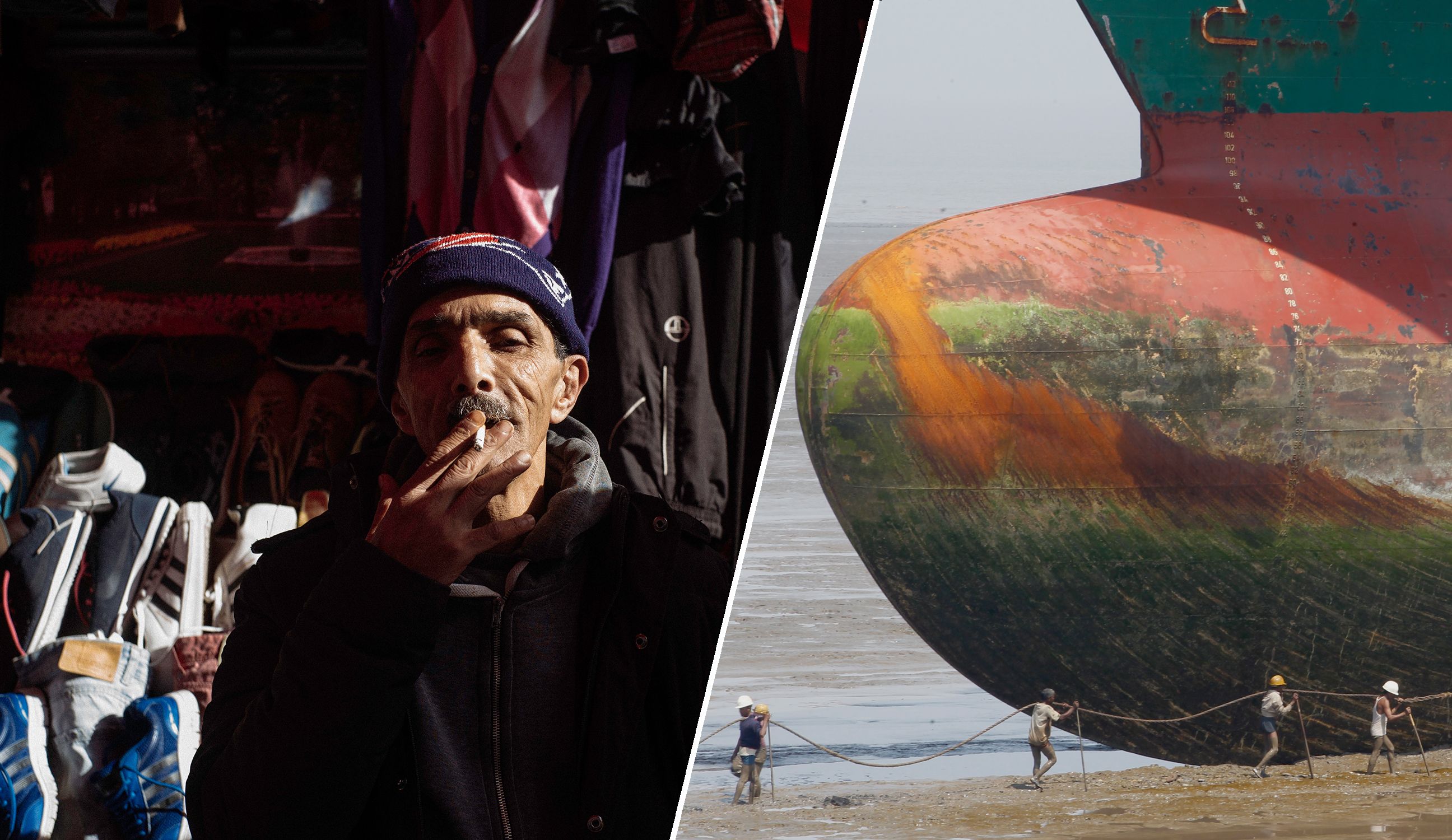
Deux enquêtes financées par la foule
C'est à l’occasion de son 50e anniversaire, en 2018, que Public Eye a créé son prix d’investigation, destiné à soutenir le travail de journalistes et d’ONG qui s’intéressent aux activités problématiques de sociétés domiciliées en Suisse, et à leurs conséquences néfastes dans les pays pauvre. Cette première édition a été un succès: parmi 55 propositions de 22 pays, notre prestigieux jury avait sélectionné deux projets d’enquête ambitieux.
Marie Maurisse voulait enquêter sur les recettes secrètes des géants suisses du tabac, tandis que Nicola Mulinaris, de l’ONG Shipbreaking Platform, et Gie Goris, de MO* Magazine (Belgique), s'intéressaient au rôle des sociétés suisses dans le démantèlement sauvage des bateaux en Asie du Sud.
Afin de financer ces deux enquêtes, nous sommes partis à la recherche de généreux donateurs. L’occasion pour Public Eye de se lancer dans le grand bain du financement participatif. En cinq semaines seulement, 325 contributeurs et contributrices nous ont permis de récolter plus de 30'000 francs. Grâce à eux, les lauréats ont pu réaliser leur projet, en toute indépendance. Les résultats ont été publié en janvier 2019, en ligne et dans un numéro spécial du magazine de Public Eye.
Les cigarettes suisses font un tabac en Afrique
Les cigarettes vendues par les géants helvétiques du tabac en Afrique sont-elles plus nocives que celles commercialisées en Europe? C’est à cette question que répond le premier projet lauréat de notre prix d’investigation 2018. Marie Maurisse, journaliste indépendante et cofondatrice de l’agence Vesper, à Lausanne, a enquêté en Suisse, en Europe et au Maroc pour mettre en lumière les recettes secrètes d’une industrie qui met tout en œuvre, depuis des décennies, pour saper les efforts visant à enrayer le fléau du tabagisme.
L’enfer des cimetières de bateaux
Pour réaliser le second projet lauréat en 2018, Gie Goris, du magazine flamand MO*, et Nicola Mulinaris, de l’ONG Shipbreaking Platform, ont joint leurs efforts dans une enquête consacrée au démantèlement des navires sur les plages d’Inde, du Bangladesh et du Pakistan, où le secteur suisse de l’affrètement, plutôt discret, se débarrasse de ses navires en fin de vie. Ce duo de choc «ONG et média» voulait aussi donner la parole aux victimes de cette forme de «colonialisme toxique», dont les conséquences sociales et environnementales sont dramatiques.
-
The 2020 Winning Project
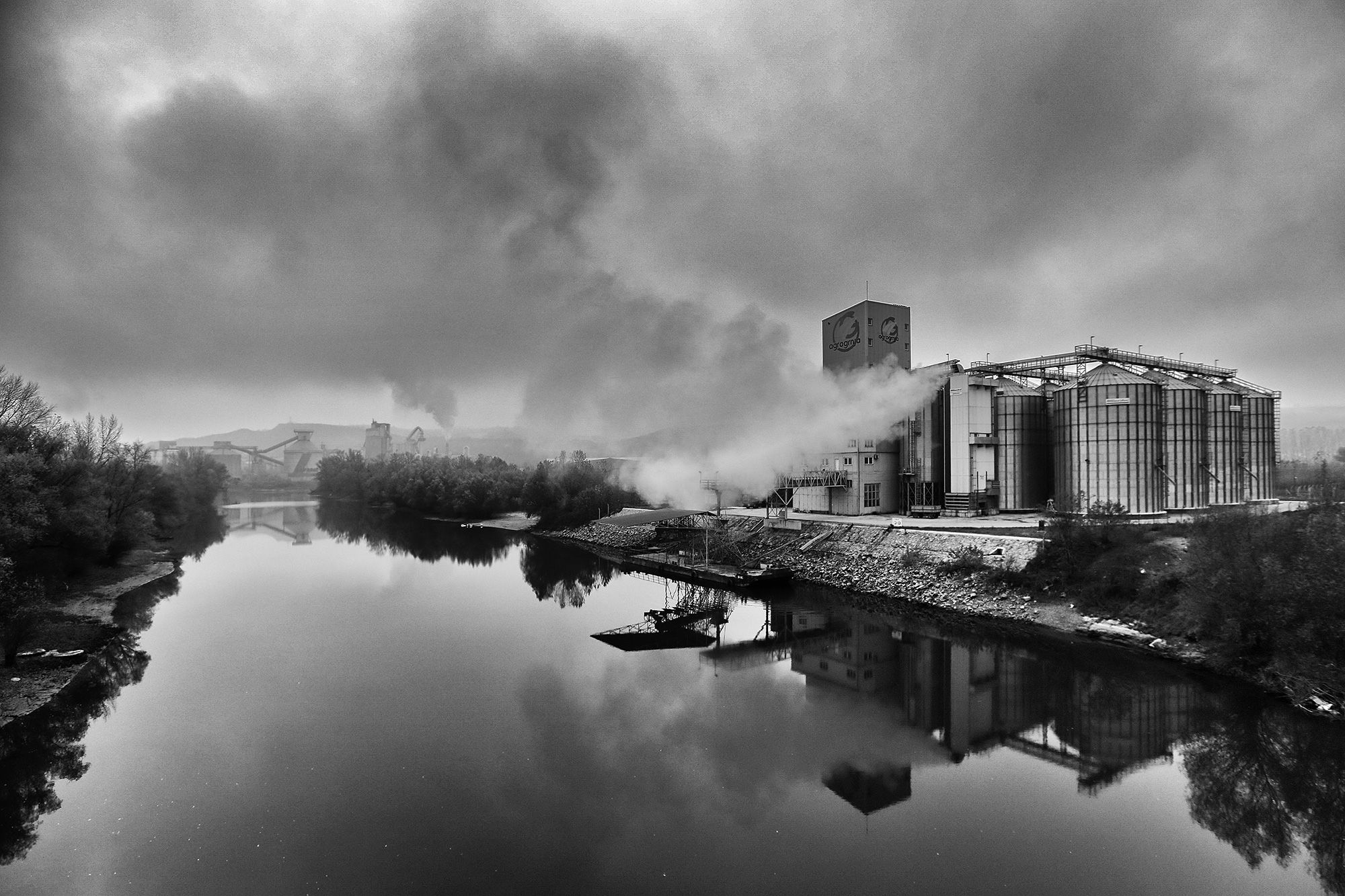 ©
Jan Valo
©
Jan Valo
Shortly after the call for applications, the world (as well as journalists) were primarily focused on overcoming the Covid 19 pandemic and thus, we were able to receive ‘only’ 44 project proposals by April 2020, ie.10 fewer than in 2018. Among the submissions, the expert jury, comprehensive of three external and three internal investigative professionals, chose two winning projects: one was published with a long delay, while the other, unfortunately, did not go through. This was due, on the one hand, to limited work resources and repeated travel restrictions, which made direct contact with informants massively difficult. In addition, as a result of career change, the award winner was forced to abandon journalism.
"How Holcim pollutes the air in Serbia with impunity"
Belgrade-based journalist Milorad Ivanovic shows the magnitude of the harmful emissions from a northern Serbian Holcim cement factory for the population of the industrial town of Beočin and how the Zug company systematically violates the legal limits there. Moreover, the factual and evocative descriptions of the "Balkan Investigative Research Network" (BIRN) explain why the Swiss industry leader has so far remained unpunished despite its massive air pollution.
-
The winners 2023
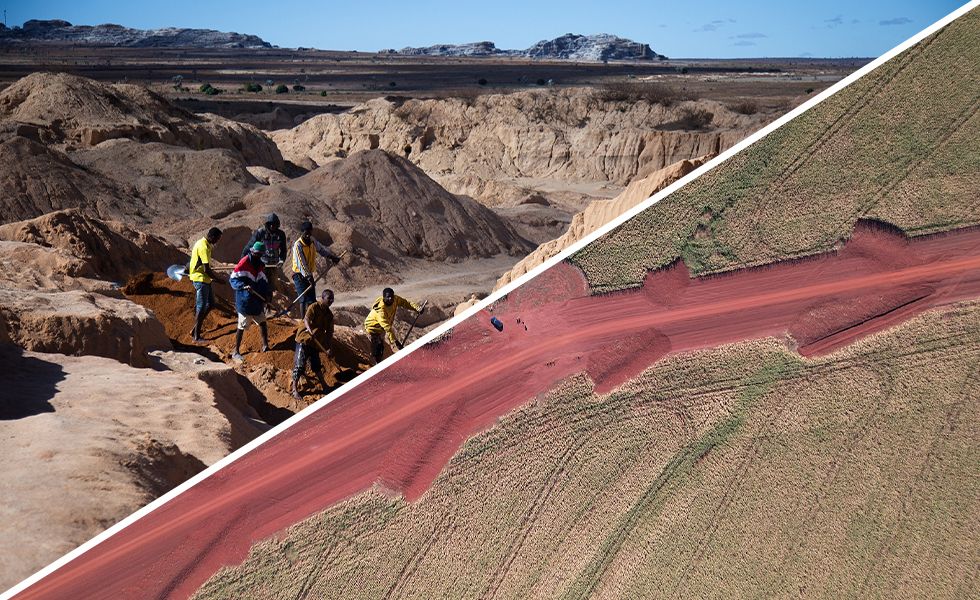
Following the success of the first two awards, in 2018 and 2020, Public Eye has for the third time announced its Investigation Award. Human rights violations, environmental damage and corruption scandals: in 2023, more than 20 journalists from around the world submitted their proposals for investigations into the activities of Swiss companies in impoverished countries. The jury, made up of eight specialists, has this time chosen to reward two totally different projects in terms of methodology and geography.
- Innovative cross-referencing of several databases to show how Swiss Re systematically violated its own sustainability criteria by selling insurance to large farming corporations in Brazil.
- A report on the sapphire mines of Madagascar, where the precious gems – purchased notably by Swiss jewellers and watchmakers – are extracted in inhumane conditions.
Winner projects
Focus on Global Justice
Although it focuses on present action, the Investigation Award was set up to celebrate Public Eye’s anniversary and reflects the organisation’s long tradition of investigative journalism; Public Eye has always associated its advocacy and campaigning with the often arduous process of shedding light on illegitimate or illegal activities against which action must be taken.
Explore the highlights of 50 years of work to make the world a fairer place

